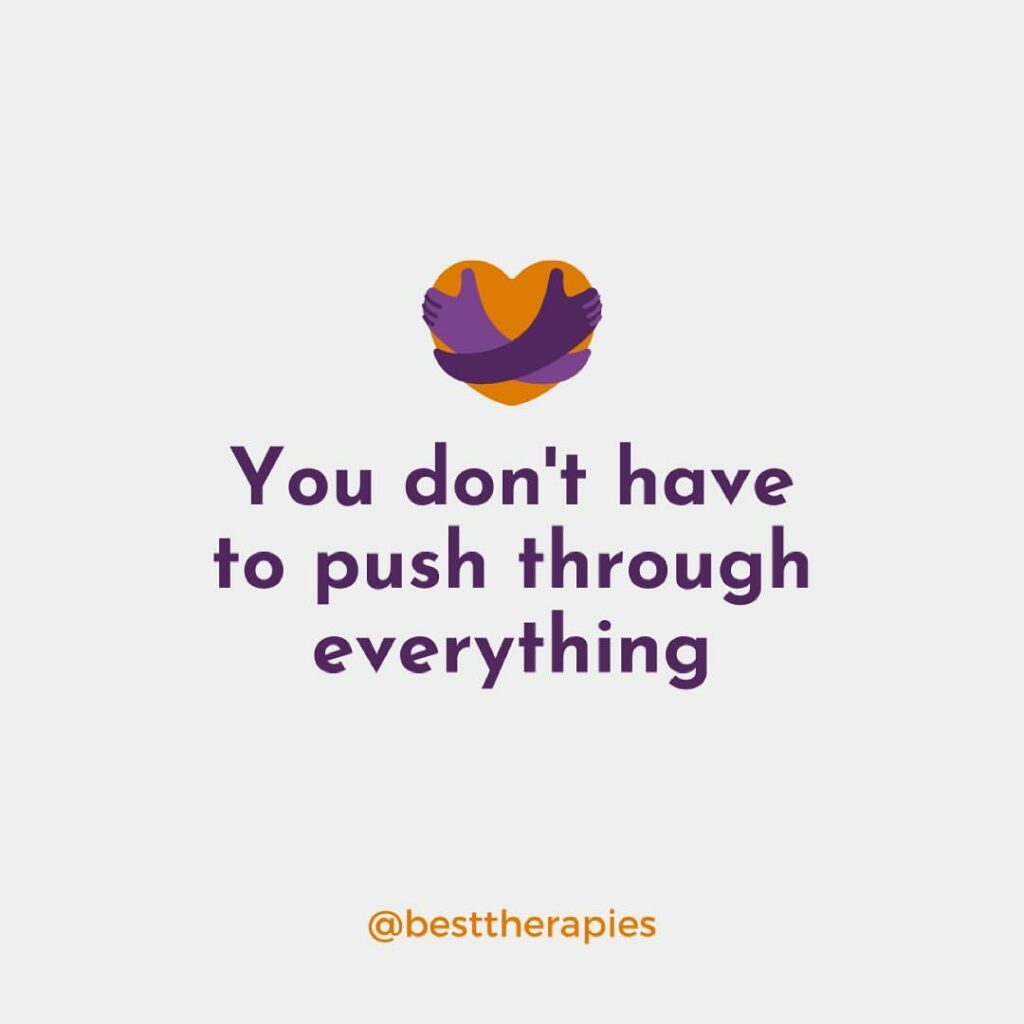Do you put yourself down or undervalue yourself to the point of struggling to set boundaries or prioritize yourself? Does your mind often repeat unhelpful, negative questions and thoughts? Do you worry excessively about the future or catastrophize the results of a change or a decision?
Mindfulness therapy can help with a wide range of thoughts and mental patterns that cause distress or difficulty in daily life. Here are some examples of thoughts that mindfulness therapy can help address:

Mindfulness seems to be everywhere these days — and for good reason. Mindfulness can be really, really effective in treating anxiety and depression and can generally improve our moods and experiences in our day-to-day lives.
Mindfulness really just means awareness of the present moment. We’re practicing being aware of what is happening right here, right now, and not judging ourselves for those experiences. Oftentimes, our brains are time travelers, either bringing up memories and moments from the past or fast-forwarding to future anxieties and fears. This can feel overwhelming and exhausting. When we practice mindfulness, we train ourselves to pay attention to the present moment, and when we do that, we open ourselves up to change!
When we engage in therapy, it’s important to recognize the rich roots and histories of the approaches we use. Mindfulness comes from Buddhist traditions that have been practiced in East and South Asian cultures for thousands of years. In therapy, we can explore mindfulness through a secular lens in order to gain tools that can help us heal.

The world is too busy and stimulating and sometimes too painful for us. In an age of constant digital distraction and daily horrors in the news, it can be hard to quiet the mind, whether it’s to rest or focus. Mindfulness training can help.
Mindfulness therapy provides you with skills and techniques to observe and relate to your thoughts differently. It helps foster a nonjudgmental and compassionate attitude toward your thoughts and experiences, allowing you to develop a more balanced and mindful way of living.
In mindfulness, we pick an anchor to connect us to the present moment. Some common anchors include focusing your attention on breathing, what you can see or what you can hear. When we practice paying attention to the present moment, we can start to notice when our thoughts, feelings and ruminations are taking us away. In this moment of noticing, we open up possibilities — we get to decide if we want to continue with this thought and feeling or if we want to acknowledge it and then take action toward change.
Mindfulness therapy can look many different ways. A mindfulness therapist might lead you through a guided meditation to practice awareness of the present moment. Other times your therapist might pause and ask you to notice how feelings are showing up physically in your body. No matter what, the goal is to connect you to the here and now because that is where transformation happens.
If you want to learn more about mindfulness therapy at Best Therapies, reach out today. We’d love to get you started on your path to calm and healing.
Many people who practice mindfulness regularly report greater self-awareness, improved concentration, lower stress and anxiety levels, improved emotional regulation, healthier coping mechanisms, increased acceptance and awareness of their physical body, and better relationships with the people around them.
Mindfulness can help us manage anxiety much more effectively. Most people find that the magnitude of symptoms, how big of an impact the symptoms have on your life, and how uncomfortable the symptoms are is greatly minimized with learning mindfulness. However, it is a bit of a trap to think it will eliminate anxiety. Many anxious people feel very uncomfortable when they’re anxious and want to get rid of their anxiety. But anxiety is fear, and fear is an essential human emotion. We’re supposed to feel fear, and we need to feel some fear. Trying to get rid of a necessary component of yourself is impossible and will also cause a great deal of stress and, ironically, anxiety. In therapy, you will work to accept that you’re going to feel some fear occasionally and to understand that it’s okay and normal. And then you can learn better to manage your symptoms and respond to that fear when you feel it so that it is much less intense and you’re not making it worse.
People can have some benefits from mindfulness within 60 seconds. There are immediate benefits for most people from mindfulness practice. If you have an anxiety disorder, your anxiety will typically take a while to work through. It will be part of your ongoing treatment with your therapist and something you should discuss in your therapy sessions.
If you are interested in learning more about mindfulness, check out some of these resources!
In order to practice mindfulness through an anti-colonial and anti-oppressive lens, we can look for books and readings written by practitioners from around the world. One author we love is Thich Nhat Hanh, a Buddhist monk born in Vietnam. Here are some of our favorites of his writings on mindfulness: